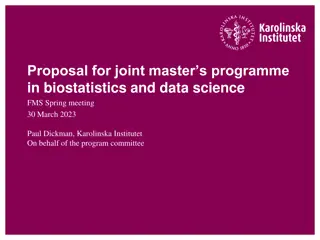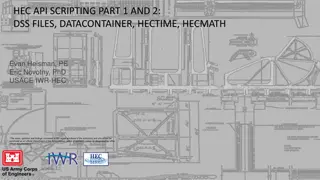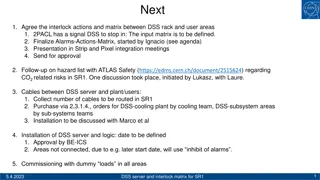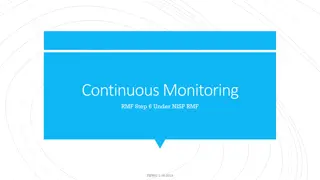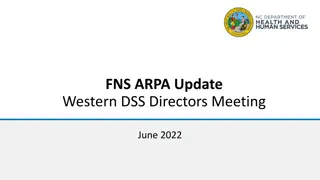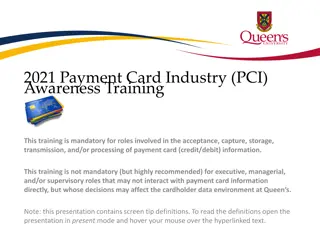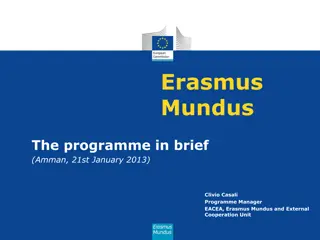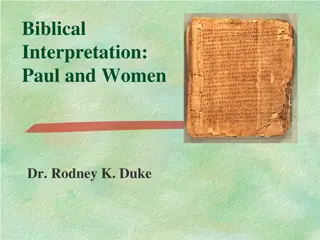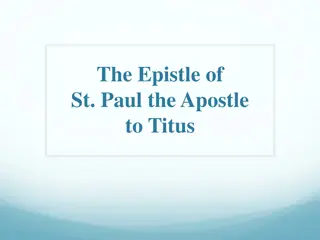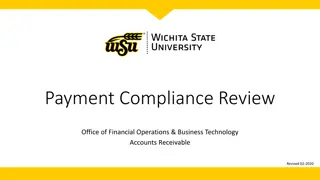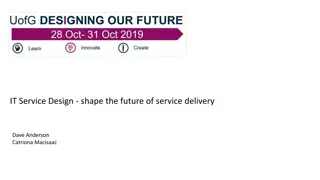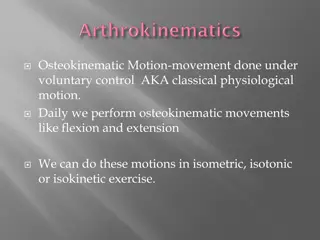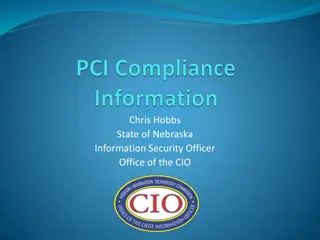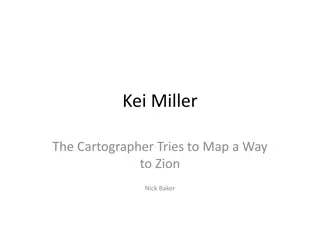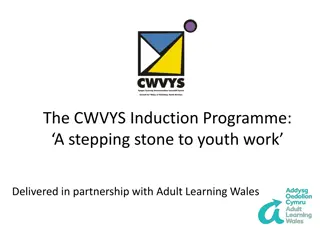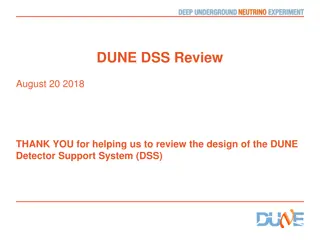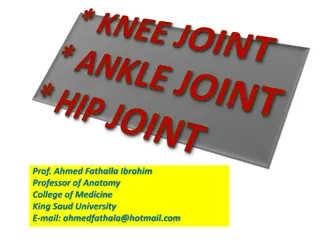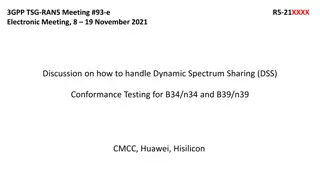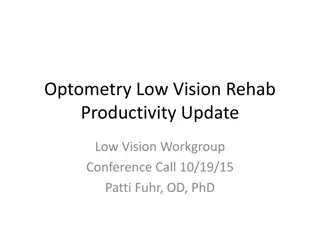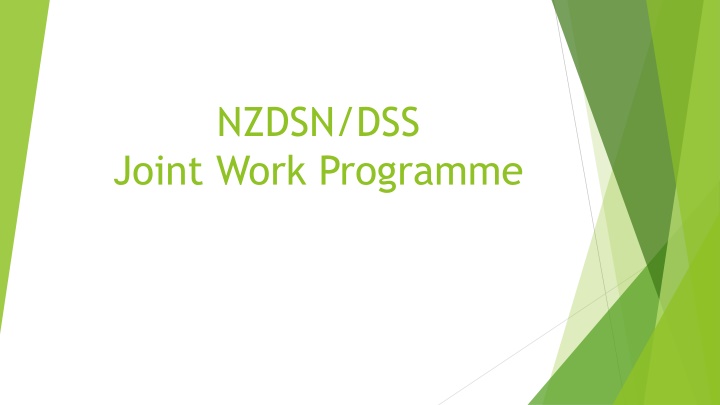
Future-Focused Commissioning for Sustainability and Innovation
"Explore the NZDSN/DSS Joint Work Programme focusing on two key priority areas: commissioning for sustainability, flexibility, and innovation, as well as a workforce development strategy. Learn about current challenges, future commissioning principles, and the project plan for implementing person-directed supports. Discover a roadmap towards creating a more transparent, flexible, and sufficient system for service providers."
Download Presentation

Please find below an Image/Link to download the presentation.
The content on the website is provided AS IS for your information and personal use only. It may not be sold, licensed, or shared on other websites without obtaining consent from the author. If you encounter any issues during the download, it is possible that the publisher has removed the file from their server.
You are allowed to download the files provided on this website for personal or commercial use, subject to the condition that they are used lawfully. All files are the property of their respective owners.
The content on the website is provided AS IS for your information and personal use only. It may not be sold, licensed, or shared on other websites without obtaining consent from the author.
E N D
Presentation Transcript
NZDSN/DSS Joint Work Programme
Two Key Priority Areas 1. Commissioning for sustainability, flexibility and innovation 2. A workforce development strategy: future focused qualification pathways and leadership development to support innovation
Commissioning for sustainability, flexibility and innovation 1.The here and now: The need to address current inequity and sustainability issues across providers before any new approaches to commissioning are in place nationally Differentially applied increases where providers could see a clear pathway to a level playing field, but without anyone experiencing funding decreases. A dedicated resource within DSS to work with the sector to develop pathway Creating an environment where providers are more uniformly able to respond to the demands of system transformation and EGL implementation without immediate sustainability issues
2. Future Commissioning Three Overarching Principles: Transparency: about outcomes; provider value propositions; the construction of personal budgets Flexibility: recognition of uncertainty; fewer rules; based on purpose Sufficiency: sufficient to deliver, consensus about reasonable costs, recognition about the need for trade-offs; provision for margins Contracting for person directed supports (FDS) Creating a context in which providers can figure out the costs of providing different supports in an FDS contracting model.
Future Commissioning Project Plan ( Initial Road Map ) A) Proof of concept Development of a planning and pricing tool (conceptual) Sense checking tool with a group of providers (Mid Central) Field test with a small group of providers with expertise in application (not live ) Incorporate feedback from field test into model Share updated model with Mid Central group for further feedback B) Convene a technical working group to develop pricing model Field test draft tool across several sites (not live ) Review and incorporate feedback; field test with a larger sample and further review Progressive national roll out
Understanding where person-directed commissioning is most relevant which approaches might work best depend on how easily the disabled person can determine what will work (or judge performance), and whether they can buy that support in a general market, or a more narrow/ specialised one different commissioning instruments are more or less appropriate for different quadrants Approaches that devolve leadership to individuals and communities more Specialist Catalytic approaches structured approaches to break inertia, but that might then look towards a more devolved model More likely to be top down commissioning and contracting More analytic/ top-down approaches to ensuring that the right mix of specialist supports are available Harder to know what will work for Easier to know what will work for me me More likely for personal budgeting approaches to be appropriate Commissioning considers what the future shape of the market could be and different commissioning instruments will also shape the kind of providers, community collectives, or individual leaders, that are present to draw on in the future DRAFT Not Government Policy Generalist
(Some) First Thoughts Flexible is not the same as loose or vague How do we make sure that choice is always creating value for disabled people? Thin markets first best vs fourth best options Empowerment vs Problem shifting People Transformation will occur at the pace at which capability lets it When we get this contract, then we will be person-directed (?) Starting fresh (whilst being in transition) how do we take the best of the old, without grandparenting in the things we want to change? DRAFT Not Government Policy
The building blocks for person-directed contracts Guidance and expectations what do we mean by person-directed? What do we expect to be different? What can you tell your staff about what is different? Training creating shared understanding of how to use a person-directed contract between those allocating to it, and those coordinating/ leading services with an individual disabled person Measurement what is meaningful but also not onerous - measurement under this contract? How can that sit in a commissioning system? Costing how can the system be consistent about what it contributes between people in similar situations? How do we free up funding systems to recognise and resource the different levels of capability required? DRAFT Not Government Policy
Guidance, Training, Measurement Greater discretion ought to be available as greater trust builds and where trust is damaged, there ought to be a pathway back to rebuild it. There also ought to be reward for better performance, and greater change to an EGL way of working. Individual Service Design/leadership Service development/ operations management Shifts in discretion Being of service, and working to create ordinary life outcomes The practice of individual service coordinators is supported to grow into an EGL and person-directed Being person-directed,- creating person- directed systems and environment Providers are supported to understand how to design and embed person-directed approaches at scale in their systems. Reward/change for verified achievement of results As results improve, greater degrees of discretion (and reduced compliance) are available to the provider approach. Individualised supports demonstrate EGL best practice and are starting to show innovation that takes EGL All services demonstrate transformation to embed the rights of disabled people 3. further 2. Individuals responding to service requests are equipped to be person-directed, work with a diverse range of decision-making styles, and plan to create inclusion 1. Business processes, systems, and rules, are beginning to be adapted to support being person- directed as BAU DRAFT Not Government Policy
Costing Does this function as a market or not? Are quality vs volume trade-offs desirable? Where the person delivering the service, and what the service is, is not easily separated by those experiencing it Where initial planning identifies a high quality, low intrusion option that will grow independence, is it desirable to have that traded off for a higher volume, higher intrusion option that, whilst perhaps being more comfortable, will create less independence? If a plan is finely balanced, is it meaningful to talk about disabled people then going to providers to make trade-offs between volume and quality using their personal budgets? Where supporting the person is more challenging, or requires higher skill, and there are fewer options available Person is more likely just to advocate for larger package For more personal tasks or tasks where confidence in the individual providing matters (eg. PCs, learning skills, building engagement in community) May be more shopping around But this will be less so if people are looking for more than just this kind of service, and want all their service from the same place. For basic tasks that are readily bought from mainstream markets (eg. Commercial cleaning) Are people able to choose to be more reliant on funded supports, within Commissioning for Outcomes ? The personal qualities of the person delivering the service has less of an influence on what the service is So, how can we provide confidence that we can implement PDDSC, and stay within Appropriation? As soon as relationship matters, ideas about price competition, shopping around , and competition driving performance are less likely to describe what happens DRAFT Not Government Policy
Costing finding a way through What should a costing tool look like? Being principled about it Transparency, Flexibility, Sufficiency Spectrum of options for the output: could just be an agreed loading method; could be a more developed budgeting tool; and is there a separate tool for supporting providers to understand their costs? Getting clear on what the disabled person is seeking including the control they are seeking, and being clear on what providers can deliver to that (the value proposition) as a basis before a cost conversation is meaningful Transparency Knowing what the assumptions are in putting together a personal budget amount Make sure that the way assumptions are shown doesn t steer people to expect one type of support (hours) only Flexibility The process around the conversation matters as much as any specific costing tool Make sure that the tool is not steering people to a narrow list of support types / capabilities, either Attach accountability to the purpose of support, rather than to specific outputs of support but be clear if there are particular things that are very important to the disabled person and their family having the ability to negotiate is good having to always negotiate maybe less so There needs to be a clear relationship between the person s plan and the resource available to do it Sufficiency If not everything can fit within what the system can afford to contribute (the Indicative Range ), the disabled person may choose to make some trade-offs about how fast, how often things are done, or which things are priorities DRAFT Not Government Policy Costing tools need to provide enough clarity about when likely payroll costs will be incurred so that appropriate financial management and planning is possible
A workforce development strategy: future focused qualification pathways and leadership development to support innovation A series of projects to address long standing issues with current qualification pathways along with shorter term leadership support opportunities and training resources. These projects will be delivered as a partnership between NZDSN, NEGL Leadership Group and the Ministry of Health These projects are the first steps in a larger Workforce Strategy as part of the system transformation work programme This is an opportunity to embed co- governance, co-design and co- delivery approaches in project design and implementation
Five Projects 1. Cross agency facilitation and collaboration for the development and delivery of qualifications(Health and Well being Certificates level 2-4) 2. Diploma level qualification development for practice leadership role: Behaviour Support 3. Diploma level qualification development for practice leadership role: Independent facilitation/connector role. 4. Leadership development and support for service transformation 5. Video training resources to support EGL informed practice implementation Funding for projects 1-3 is secured; funding for projects 4 and 5 is dependent on the outcome of budget bids.
Qualification related projects will involve a collaborative effort across stakeholders to: Commit to a consensus building approach and the EGL principles Bring to the table and agreeing on the best qualification content available Matching the content to the qualifications so that there is a coherent curriculum/learning journey Reach consensus about the best delivery model/s Ensure that the voices of disabled people and families/whanau are integral to the projects Ensure the engagement of Careerforce and Te Pukenga
The Goals of these qualification related projects is to ensure that: Qualification content is future focused, EGL informed and offers a coherent learning journey (a curriculum) with tangible learning outcomes The qualifications are delivered to a consistent quality, are transferable, accessible no matter what the employment context, and accessible to all learners delivery models ensure that there are appropriate levels of learning and pastoral support throughout the qualification journey.
Leadership development and support for service transformation A six month service transformation journey involving workshops, on line communities of learning and coaching sessions to embed EGL informed practice Incorporating feedback and learning from the initial cohort of 29 providers Delivering the programme to another 40 providers in 2021/22 The development of video resources to support EGL informed implementation A series of 8 videos demonstrating effective implementation of each of the 8 Enabling Good lives principles Demonstrating that the EGL principles have relevance for all disabled people and does not depend on system transformation per se The voices of disabled people and families tell the story of how good lives have been enabled.
Project Design and Structure The Workforce Projects will have a single governance arrangement comprising disabled people, family members and project sponsors (funders): NEGL Leadership Group, NZDSN, MSD, MoH, Careerforce and possibly Te Pukenga The independent facilitator/connector role qualification project will be led by disabled people/family/whanau members and contracted directly through the Ministry of Health. All other projects contracted through NZDSN Each project will have dedicated project co-leads involving disabled people/family members Each project will have its own stakeholder/working group to ensure key voices are heard and subject matter expertise is utilised. Collectively this work programme is an ambitious undertaking and will rely on people with well honed consensus development skills There are multiple opportunities here for contributions as project co-leads and stakeholder group membership. Watch out for requests for expressions of interest!!

